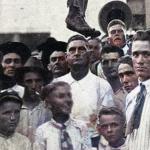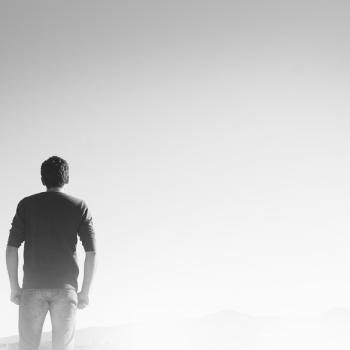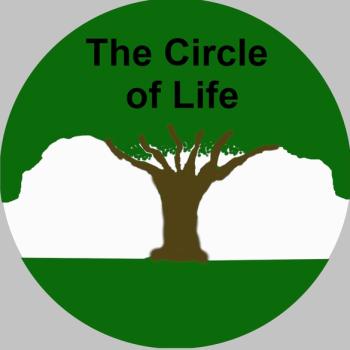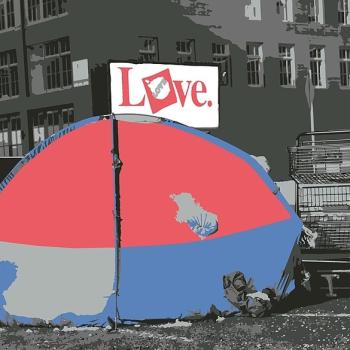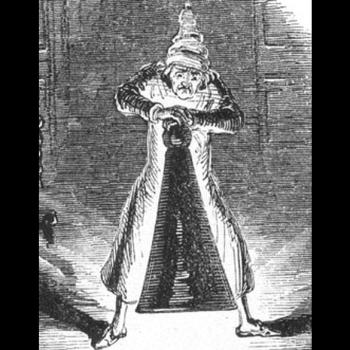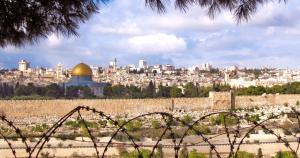
~ What if this pious proclamation was – in fact – a bloody crusade against oppressed people? ~
You are the pastor of a small church in Appalachia. It’s a pretty little white, clapboard chapel in a Smoky Mountain holler with green fields and forested hillsides.
One weekday, you pull into the church parking lot, admiring the church marquee.
“We Stand with Israel,” it reads.
Anxious to prepare Sunday’s sermon on that topic, you step into your office. Opening the Bible, you read the words God spoke to Abraham before the founding of the nation of Israel.
“I will bless those who bless you, and whoever curses you I will curse; and all peoples on earth will be blessed through you.”[1]
“Oh Lord,” you say, dropping to your knees, “you said that Israel is the apple of your eye. As I share your Holy Word this Sunday, give me clarity and conviction. I desire to walk with your son, Jesus, from Bethlehem to the ends of the earth. In your precious name I pray, Amen.”
As you rise from the floor, the office door opens and in rushes a Middle Eastern man with sweaty brow and disheveled hair. It’s not uncommon for folk to step into your office during work hours, but you have never seen this man before.
“Well hello,” you say. “You must be new to the area.”
“Actually, I live here,” he says with a sense of urgency. “I just need to warn you that …”
At that instant, a tremendous “BOOOOOOM” rattles the building.
“What the … !” you yell, bracing yourself against the tremors.
The man takes off running.
You follow him outside where you receive the shock of your life.
The Appalachian Mountains are nowhere to be seen!
You are surrounded by pale, dusty streets, ancient stone walls, squat concrete hovels, gray-blue sky and an oppressive heat that jars your senses. Your church stands in a dirt lot beside a tall, graffitied concrete wall topped with razor wire. In front of your church burns the splintered remains of the marquee that once read, “We Stand with Israel.” A number of agitated olive-skinned men babble in a language you cannot understand.
Seeing the panic on your face, your new friend tries to console you.
“It’s okay,” he says. “Nobody got hurt. The fire will burn itself out. That’s why I came. I tried to warn you.”
“Warn me?” you mutter, slow to understand.
“Warn you. About your sign,” he explains. “People here don’t take kindly to Israel. They bombed your sign. But I was too late.”
“But … b-but,” you stutter, gaping at the scene around you. “This place … Where am I?”
“Don’t you know?” the man says, a querulous expression on his face. “Your prayer was answered. You’re in the West Bank. This is Bethlehem.”
~~~~~~
Later that same day, you are seated on a wooden crate in the shadow of your church. Beside you, your new friend Elias stands with his back against the clapboard wall. You finally understand that — whether by an act of God or a wrinkle in the cosmos — your church has been transported into the Palestinian sector of Bethlehem.
“We’re prisoners here,” explains a nine-year-old girl named Aisha who has befriended you. “Nobody gets past the wall.”
“Not without the right papers,” says Elias, your Palestinian companion.
The sobering concrete and steel barrier towers grim and gray, high above your little chapel.
“But it’s worse in Gaza,” says Elias, “with 2,000,000 Palestinians crammed into a tiny strip of land with no way out. Here, at least they let some people pass through to work in Israel.”
“Why not work right here in the West Bank?” you ask.
He shakes his head. “There’s barely room to live here and the Israelis have strict rules about that. So nearly 50 percent of Palestinians are unemployed.”
“My dad got a job in Jerusalem,” Aisha says, “but we’re prisoners here.”
“Prisoners of war,” says Elias. “The Israelis keep breaking treaties and taking more of our land. Palestine is not recognized as an autonomous country by the United States, even though most of the world says it is.”
“It’s you Americans who keep us here,” says the young girl.
“We are a people without a home,” says Elias.
“Nobody will give us a place to live,” says Aisha.
You gaze at a hillside of ugly concrete buildings, wondering if that was where shepherds watched over their sheep on that first Christmas night. You loosen your collar, feeling a growing discomfort.
“From everything I’ve read,” you state, “the Palestinians are terrorists who can’t be trusted.”
Aisha gives a tsk-tsk while the man Elias shakes his head.
“You and your country are financing this war,” says Elias, “by giving billions and billions of dollars to the Israeli army.”
You feel the tension rise in your neck and shoulders. With a shake of your head, you say, “God said he would bless those who bless Israel and curse those who curse Israel.”
The man delivers a heavy sigh. “Unfortunately, we’ve been hearing that pious trope since the Crusades. And like the Crusades, it plays out in politics and money, not in godly virtues. Do you even know where that refrain came from? It’s a lie from wicked men who want to get your money to support their war. You do know, of course, that that verse you quoted is conditional, contingent upon Israel’s obedience in that narrow context of time and place? I don’t hear you folk quoting the scores of verses about God cursing and abandoning Israel for their disobedience and idolatry.”[2]
You retrieve a handkerchief from your back pocket and wipe the perspiration off your face and neck.
“That’s not what I was taught,” you say.
“And so you stand with Israel,” Elias says, staring you down over his wire-rimmed glasses, “even though your blood money is slaughtering innocent Palestinian families, year after year and decade after decade. Do you realize that Israelis are killing seven Palestinians for every one Israeli that dies? And you’re saying who are the terrorists?”[3]
“There’s not one Baptist in the county who would stick with me,” you say, struggling for credibility, “if I stopped standing on the side of Israel and … and …”
“Have you and your pious brethren considered taking no side at all?” interjected Elias. “Have you considered telling your religious brethren to get out of the business of buying weapons? Try embracing the hundreds of scriptures about God’s love and justice and mercy and truth, instead of taking one or two verses out of context.”
“You’re only saying that because you’re Palestinian,” you blurt.
“Elias lives here,” says Aisha, “but he’s not Palestinian. He’s Israeli.”
With an expression of disbelief, you gape at the fellow you thought to be an enemy of Israel.
“I’m Jewish,” Elias says with a solemn nod, “and thank you for not broadcasting that too loudly. A lot of folk here in the West Bank hate Jews.”
“I haven’t told anyone else,” brags little Aisha.
You wipe your forehead, feeling dizzy from the heat. Your ears still ring from the explosion.
“And you live here,” you ask, “in Bethlehem?”
“Since the day I was born,” he says with a proud smile.
You take a deep breath, gazing at the dusty sky.
“Here’s some drinking water,” your Jewish friend says, offering you a bottle. “I don’t know if you have any plumbing in that church of yours, but don’t drink the water. It’s not safe.”
“Not safe?” you ask.
“Polluted,” says Aisha. “Don’t forget, you’re in a prison camp.”
“Everything’s rationed,” says Elias. “We’re lucky to get three hours of electricity each day.”
You twist the cap off the water bottle and take a long draught.
“With no jobs and nothing to do,” says Elias, “caged-up people can stir up trouble. So if you see anything brewing, get as far away as possible. I’m only trying to help you.”
“Holy cow,” you say, setting down the water bottle. “Bethlehem is not at all like I imagined.”
“Welcome to life in the Palestinian ghetto,” the Elias. “These refugees have been forcibly removed from their homes and stripped of all dignity. Just be careful , okay? This is a prison camp.”
For several seconds, you and your Jewish friend lock eyes.
“Why don’t you live in Israel?” you ask with a tone of skepticism. “Did you get black-listed or something?”
“He’s one of my best friends,” says Aisha, “and he likes doing stuff with me and my mom. This is his home.”
Elias smiles and gives Aisha a hug. “I like it here,” he says.
~~~~~~
A week has passed since your church landed like Dorothy’s house not in Oz, but in Bethlehem.
“I brought you some figs,” says Aisha. “They’re super sweet.”
“Oh, child,” you exclaim, “you shouldn’t. You and your mom can barely get by as it is.”
“Here,” she says, pushing them at you.
Strange how she cares for me, you think, when to most Americans, she’s a Palestinian pariah.
“How do you speak such good English?” you ask.
Aisha gives you a shy smile, her bright eyes twinkling. “Miss Maysaa’ taught me for as long as I can remember. She’s my favorite teacher.”
For a week now, you have survived by sleeping on a pew at night and living off bottled water and tidbits of food brought to you by Aisha and Elias. Explosions and street fights have become a normal part of the routine. You never stray far from your church. You have no money and getting a job is out of the question.
The truth of your situation is inescapable: You are imprisoned in the West Bank.
One afternoon, you take a seat on a wooden crate. Seeing Aisha’ mother, you wave to her across the dirt lot. You watch as a cluster of children return from school. A smile comes to your face as little Aisha bounces up the stairs to her front door.
She has chores to do before she can come to visit, you remind yourself.
Your afternoon is wasted watching teens spray-paint anti-American slogans on the monolithic wall. The evening air gets choked by smoke from burning tires. Tensions increase as boys throw rocks at an Israeli military vehicle.
As dusk falls, a blanket of peace settles over Bethlehem, bringing to mind pastoral images of Baby Jesus wrapped in swaddling clothes and lying in a manger.
Silent night, you muse.
Then suddenly …
KAAAABOOOOOM!!! BAAAAAAAM!!! BAAAAM!!!!
The square explodes in fire and smoke. A fusillade of shrapnel and heat slams your body against the wall of the church. As you crumple to the ground, you hear shouts and screams, but you only understand one word.
“Missiles!”
A warning siren sounds.
People are running everywhere.
Smoke pours from a building across the square.
“Oh my God!” you exclaim, rising to your feet. “Aisha!”
Within moments, a fire truck arrives to pump water into the fire. You stagger to Aisha’s house where desperate people carry bodies from the smoldering wreckage. You feel so helpless! Suddenly you see — there on the pavement, bloodied and broken — the bodies of Aisha and her mother.
“No!” you cry. “No! Oh God, please no! No! No!”
You turn to the darkening sky, tears flooding your eyes and rolling down your cheeks.
“No! No! No!”
You reach out, as if to embrace the child who is lying there all alone, but she is too broken. Too bloodied.
“No!” you moan.
A grief deeper than you have ever known claws into you, gripping your chest with a pain too intense to bear.
“God, no!!!” you shout. “No! No! No!!!!”
Your shouts are eclipsed by bitter cries that need no translation. The enormous gulf between you and the Palestinian people is erased as disparate voices rise as one — a baleful groan that grows with every breath.
“Aaaaaahhh! Aaaaaahhhhhhhhhh!”
Your eyes return to the bloodied montage on the pavement. A suffocating grip of death squeezes the air from your chest. You turn your eyes away as the cries of the living stab the flame-torn sky.
“Aaaaaaaaahhhhhh!!!!!
The grief is killing you. With all your strength, you force your eyelids shut. It’s no good. You can’t erase the grotesque picture of blood and flesh and bone from your vision.
This was the precious child I never held.
The child I never hugged.
The child I never told, “I love you.”
The child I will never hold.
Your body heaves with sobs too deep to contain. As your strength ebbs, you fall to your knees and …
… strong arms embrace you.
Someone is kneeling behind you, holding you, squeezing you, sharing the pain.
Still sobbing, you crumble into his embrace. You cannot see him, but instinctively you know who it is.
My Jewish friend. Elias.
“Aisha!” you sob. “And her mother. They … they’re …”
“I know,” says Elias, strengthening his grip around your chest. “I know.”
By the sound of his voice, you can tell that he, too, is weeping.
With a guarded glance to your chest, you see his olive brown skin, his strong arms, his hands, and …
“Oh my God,” you gasp in sudden recognition. “Your hands … The nail scars … You are …”
Shaking your head, you think of the bodies, the smoldering carnage, the missiles and the wall.
“It’s you,” you whisper. “Here, of all places. It’s you.”
“It’s me,” he says. “But don’t worry. I won’t leave you.”
“But you? Here in the West Bank. With … with …”
“They are not the enemy,” he says, still sobbing at your back. “They are my people. They are my friends. And Aisha … and her mother …”
“Aisha,” you groan. Unable to contain your grief, your chest heaves with uncontrollable sobs.
“Precious Aisha,” Elias says. “Precious, precious Aisha.”
Your eyes are riveted to the nail-scarred hands that hold you tight.[4]
Image by Neufal54 / Pixabay.com.
[1] Genesis 12:3 (NIV).
[2] Conditional (adjective; kən-ˈdish-nəl) : subject to, implying, or dependent upon a condition. Note that nearly the entire chapter of Deuteronomy 28 speaks of the terrible curses that will befall Israel if they are unfaithful to God.
[3] “This Chart Shows Every Person Killed in the Israel-Palestine Conflict since 2000,” by Max Fisher, Vox Media, 14 June 2014, www.vox.com/2014/7/14/5898581/chart-israel-palestine-conflict-deaths .
[4] “Israel’s apartheid against Palestinians: a cruel system of domination and a crime against humanity,” Amnesty International, 1 February 2022, www.amnesty.org/en/latest/news/2022/02/israels-apartheid-against-palestinians-a-cruel-system-of-domination-and-a-crime-against-humanity/
“Injustice against Palestine: Are Americans culpable?,” by Ella Bruno, Georgetown Voice, 22 September 2022, https://georgetownvoice.com/2022/09/22/injustice-aginst-palestine/.
“Israel and Occupied Palestinian Territories 2021,” Amnesty International, 2021, www.amnesty.org/en/location/middle-east-and-north-africa/israel-and-occupied-palestinian-territories/report-israel-and-occupied-palestinian-territories/.

